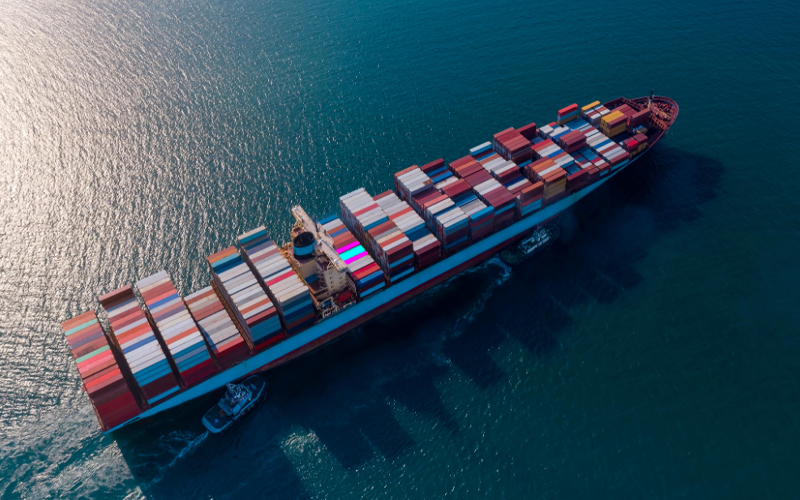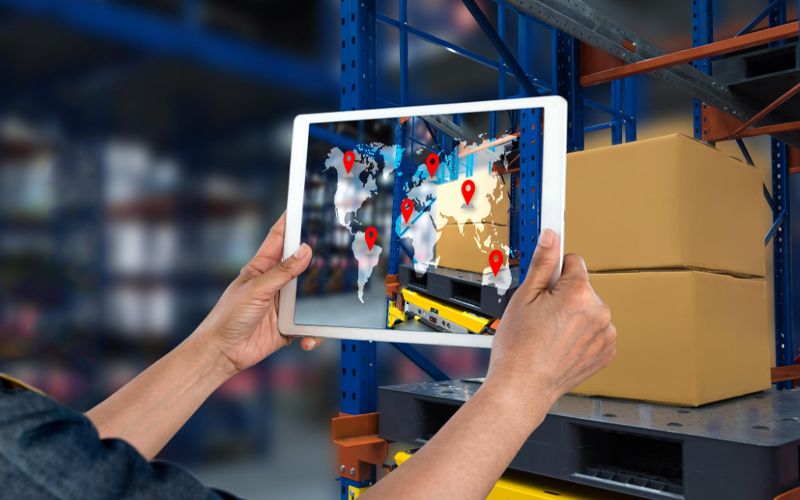In today's fast-paced and interconnected world, logistics optimisation plays a crucial role in efficient and cost-effective supply chain management. Big data analytics has disrupted the traditional logistics management process to enhance logistics operations. Businesses can access vast amounts of data to mitigate risks and ensure hassle-free supply chain management. Data analytics for logistics enables organisations to use big data in logistics and supply chain management to improve visibility, efficiency, and decision-making.
Big data has made “big” strides in the logistics ecosystem. Research shows that 98% of third-party logistics companies and 93% of shippers believe that big data analytics facilitates intelligent decision-making.
Big data analytics facilitates a comprehensive approach that enhances transportation, inventory and warehouse management, demand forecasting, and more across logistics and supply chain management operations. It integrates various systems like sensors, RFID tags, GPS devices, and Enterprise Resource Planning (ERP). Big data analytics facilitates a comprehensive approach that enhances transportation, inventory and warehouse management, demand forecasting, and more.
How Big Data Analytics Optimise Logistics Processes and Improve Overall Efficiency
- Facilitates Real-time Tracking and Visibility
- Demand Forecasting and Inventory Management
- Route Optimisation and Fleet Management
- Risk Mitigation and Supply Chain Resilience
- Continuous Improvement and Cost Reduction
- Maintaining Assets
One of the key benefits of big data analytics in logistics optimisation is the ability to track and monitor shipments in real time. Big data gathers and analyses data from multiple sources such as GPS trackers, sensors, and RFID tags and provides valuable insights into the location, condition, and status of goods. This real-time visibility facilitates proactive decision-making, allowing companies to address any potential issues promptly and ensure timely delivery.
Big data analytics empowers logistics professionals to make accurate demand forecasts and optimise inventory levels. Big data analyses historical sales data, market trends, and customer behaviour to predict future demand patterns. These forecasts help businesses adjust their inventory accordingly which helps in reducing stockouts, minimising excess inventory, and ultimately enhancing customer experience.
For logistics firms, effective route mapping holds paramount importance in cutting transportation expenses and enhancing delivery timelines. Leveraging big data analytics empowers businesses to scrutinise elements like traffic flow, weather forecasts, and past data for route and schedule optimisation. Pinpointing the most optimal routes enables companies to curtail fuel usage, diminish carbon footprints, and elevate the management of their entire fleet.
Big data analytics plays a vital role in identifying and mitigating risks in logistics operations. It analyses data from multiple sources such as weather forecasts, supplier performance, historical data, and more. These insights enable logistics teams to identify potential disruptions and take preventive measures. They also make the supply chain resilient by minimising the impact of unforeseen events, such as natural disasters or supplier delays,
Big data analytics facilitates continuous tracking and analysis of operations helping logistics professionals to identify areas for improvement. Businesses can also identify bottlenecks and inefficiencies with the help of analytics data based on factors such as analysis of data on factors such as transportation costs, warehouse efficiency, and order fulfillment helps businesses implement targeted improvements, streamline processes, and reduce costs, ultimately enhancing profitability.
Big data analytics can be leveraged to predict equipment failure and maintenance needs. It helps reduce equipment downtime, enhances equipment utilisation, and extends the lifespan of assets.
Key Technologies Used in Big Data Analytics:
Machine Learning (ML):
ML algorithms can identify patterns and trends in logistics elements such as delivery times, transportation routes, inventory levels, and more. The analysis of these factors helps logistics teams to optimise operations, boost supply chain visibility, and streamline data-driven decisions. ML plays a key role in enabling predictive and prescriptive analytics in logistics.
Artificial Intelligence (AI):
AI bots automate processes such as logistics scheduling and routing. With the help of predictive analysis, AI enables logistics professionals to anticipate potential risks and mitigate them. AI-driven analytics supports faster, data-informed decisions across logistics operations.
Internet of Things (IoT):
IoT sensors are deployed in logistics management to gather data on shipments, vehicles, and warehouse operations. This information can be analysed to optimise supply chain visibility and improve decision-making. IoT sensors can be used for tracking inventory levels, monitoring the condition of products in transit, optimising warehouse space, etc.
Final Takeaway
Big data analytics has revolutionised the logistics industry by providing businesses with valuable insights and tools to optimise their operations. From real-time tracking and visibility to demand forecasting and route optimisation, the role of big data analytics in logistics management cannot be overstated. By harnessing the power of data, businesses can enhance efficiency, reduce costs, and improve customer satisfaction, ultimately gaining a competitive edge in the dynamic world of logistics. As logistics networks grow more complex, data analytics for logistics becomes a critical enabler of scalable, resilient supply chain management.
FAQ
Traditional logistics reporting focuses on historical performance, while data analytics for logistics uses real-time, predictive, and prescriptive insights to support proactive decision-making and operational optimisation.
Shipment data, transportation routes, inventory levels, sensor data, customer demand patterns, and supplier performance data are among the most valuable inputs for logistics analytics.
Yes. Big data analytics helps identify early risk signals, simulate disruption scenarios, and support faster response planning, improving resilience across logistics and supply chain operations.
AI and machine learning enhance logistics analytics by identifying patterns, predicting outcomes, automating decision-making, and continuously improving accuracy as more data becomes available.
Organizations should consider data quality, system integration, change management, and governance to ensure analytics initiatives deliver sustainable value across logistics and supply chain management.







